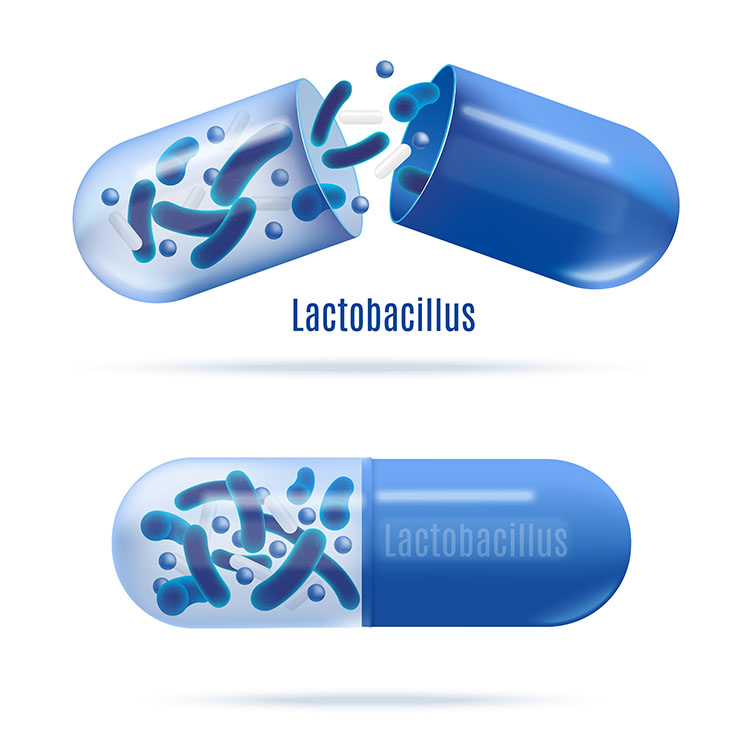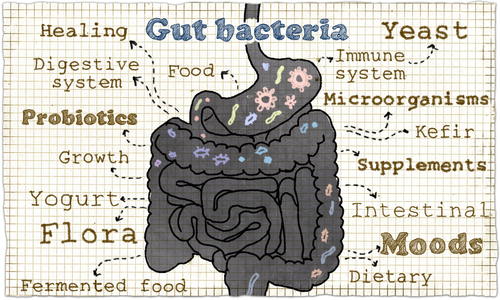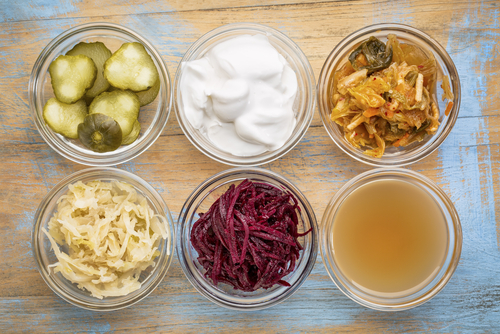
5 Key Benefits of Lactobacillus plantarum
Lactobacillus plantarum is a probiotic strain that thrives at body temperature, showcasing that L. plantarum is meant to live in human hosts. It can effectively withstand low pH levels and endure high bile acidic conditions in the intestine. This microbe can also produce its own bacteria, which works to ward off harmful bacteria infiltrating the host, so there’s more room for good bacteria to grow.
L. plantarum is a potent, high quality probiotic that can aid the human host in several ways:
- Fights off pollutants
L. plantarum is scientifically proven to combat cadmium (Cd)—an almost-invisible, deadly substance that derives from the Earth’s crust and is slowly making its way into more human food. Scientists gave mice an oral supplement of Cd along with a dosage of L. plantarum , and the results showed that the probiotic helped relieve oxidative stress while also lowering the amount of Cd absorbed into the intestine. A separate study confirms that L. plantarum shields the intestinal wall from Cd, which enables the body to alleviate oxidative stress. The multi-beneficial L. plantarum also protects the human host from aluminum and copper toxicity.
- Boosts iron absorption
When the human host absorbs iron, the body works to bind oxygen to hemoglobin, enabling oxygen to transport from tissues to lungs—a process that is necessary for human survival. However, many women have iron deficiencies, which is can be remediable by incorporating probiotics into diets. Scientists added Lactobacillus plantarum to a fruit drink with 10^10 colony-forming units and gave the juice to a group of healthy women, all within reproductive age. After consuming the probiotic-infused fruit drink for the allotted amount of time, the researchers uncovered that iron absorption improved in these women by 50 percent.
- Improves heart issues
There are lists of fermented foods with different strands and strains of probiotics and, naturally, probiotic-rich foods can help mend the gut which in turn can enhance cognitive function, digestion, as well as heart problems.
A variety of different studies have suggested that L. plantarum plays a significant role in preventing cardiovascular diseases. When blood pressure is high, the host is more likely to suffer from a heart attack; however, some studies suggest L. plantarum has shown to help reduce blood pressure.
There are two studies discussing L. plantarum potential for high blood pressure:
Researchers tested the effectiveness of Lactobacillus plantarum in fermented soymilk. They analyzed the role fermented soymilk extract had on protecting “PC-12 cells in H2O2-, oxygen-glucose deprivation (OGD) and deoxycorticosterone acetate (DOCA) salt-induced rat models of VaD.” The PC-12 cells and OGD model abilities to live and thrive increased. When the rats ingested oral supplements of probiotic-fermented soymilk extract, the rats’ blood pressure decreased.
Scientists combined blueberries with tannase, which created a strain of L. plantarum that helped reduce hypertension in lab rats. This suggests the compound may work well as an anti-hypertensive agent.

- Helps out the GI Tract
Probiotics help clear the digestive tract in many ways. L. plantarum helps to neutralize harmful bacteria in the intestine, can diminish swelling in the intestinal epithelial cells and it can improve the length of time it takes for food to travel from your mouth and through your colon (gastrointestinal transit).
The microbe also eases symptoms that often accompany Irritable Bowel Syndrome (IBS). Scientists tested if L. plantarum could help to alleviate bloating and stomach pains. One group ingested one L. plantarum capsule every day over the course of four weeks, while another group received a placebo. At the end of the study, the scientists observed that L. plantarum shows promising results in alleviating IBS symptoms. 5. Defends the immune system
L. plantarum can help defend the immune system in numerous ways. At birth, human hosts have good native bacteria present in their gut, but as time goes on, dietary changes, stress, antibiotics, or other medications can decrease the presence of beneficial microflora. This allows deleterious, opportunistic organisms like Candida albicans to potentially populate and take over resulting in possible infections or other unfavorable health conditions. Probiotics help restore healthy intestinal microflora which can improve overall health and better the host’s immune response.
 An array of foods may contain L. plantarum, including kimchi, sauerkraut and yogurt.Essentially, L. plantarum is built to withstand and mend the microbiome in human hosts. It helps the immune system, remedies the GI tract, combats toxic chemicals and helps improve overall health and wellbeing
An array of foods may contain L. plantarum, including kimchi, sauerkraut and yogurt.Essentially, L. plantarum is built to withstand and mend the microbiome in human hosts. It helps the immune system, remedies the GI tract, combats toxic chemicals and helps improve overall health and wellbeing




